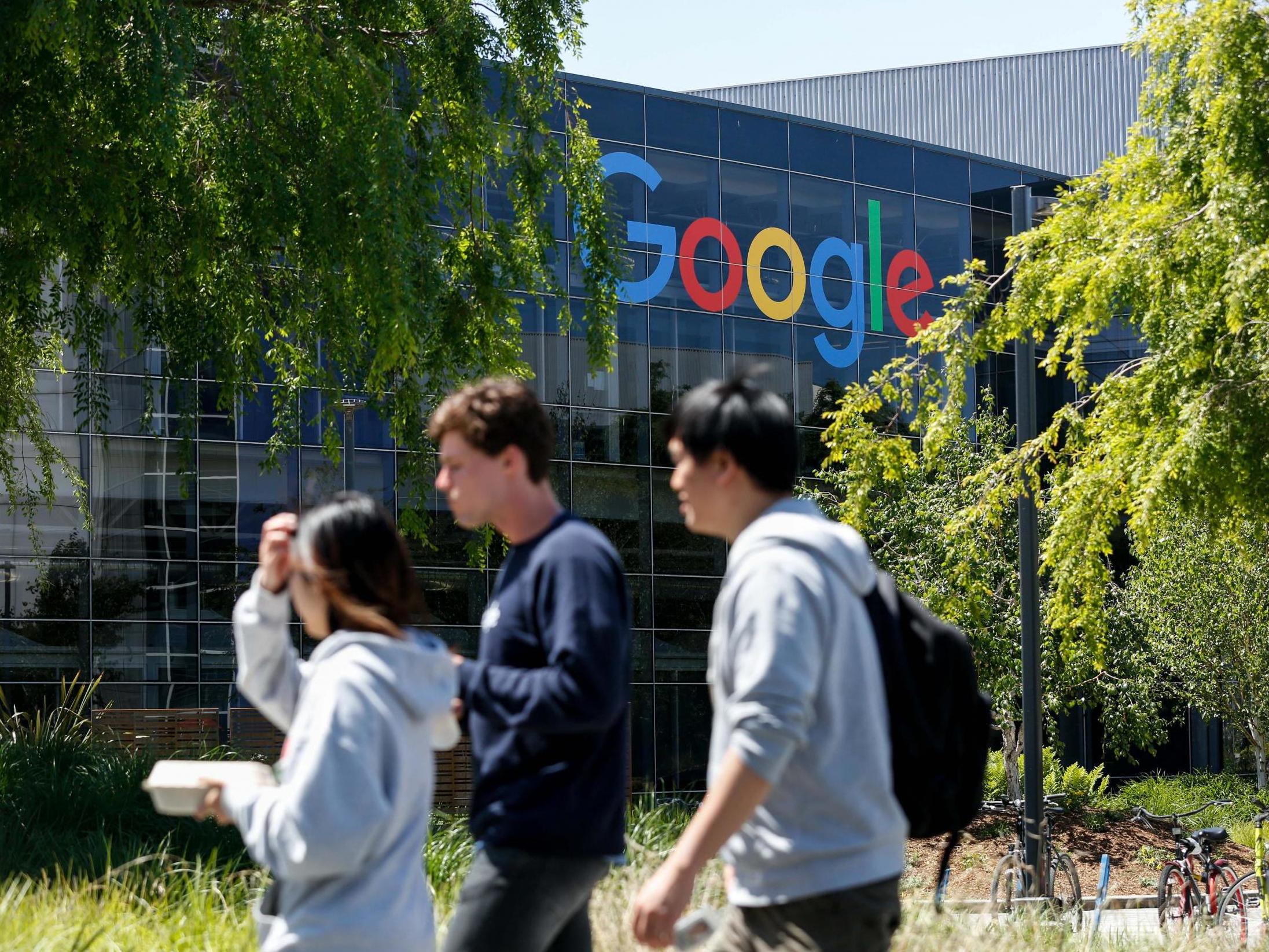In wake of Covid-19 it’s time to force the tech giants’ hands on tax
They’ve been making donations – $800m in the case of Google – but a report by TaxWatch says this amounts to a mere fraction of the money salted away in tax havens, says James Moore


At a time when tech companies are attempting to show what good corporate citizens they are, TaxWatch UK has turned a welcome spotlight on the corporation tax they pay, or rather, the lack of it.
The investigative think tank, founded and part funded by Julian Richer, of Richer Sounds fame, counted $1.2bn (£950m) in donations made by eight large companies over the two weeks to 8 April, either by direct cash grants or through the offer of free services.
They range range from an $800m package announced by Google to the free use of software for coronavirus researchers made available by Nvidia.
Announcements like these have continued over the past few days.
They’re welcome, but the point TaxWatch makes, and it’s a good one, is that all this still represents a mere fraction of the money salted away by some of these businesses in tax havens.
Through doing that they have deprived exchequers around the world of cash to fight the pandemic, and to deal with the aftermath in an organised, rather than ad hoc, manner.
It points to a study by the Institute on Taxation and Economic Policy, which found that Microsoft, Apple, Alphabet, Facebook, Cisco Systems, Adobe, Intel and Nvidia together held $571bn in offshore tax havens in 2017.
The lion’s share came from non-US jurisdictions, where, through complex corporate structures and the use of intracompany royalty payments, profits on their activities was shifted to low- or no-tax jurisdictions (such as Bermuda). By 2017, Apple alone had accumulated a $246bn mountain.
TaxWatch calculated that the money and services donated accounted for just 0.22 per cent of the total amount of profits accumulated in tax havens by the companies it looked at as at the end of 2017.
That was when the Trump administration enacted tax reforms that included both the lowering of America’s corporate tax rate, combined with anti avoidance rules aimed at securing a chunk of corporations’ offshore cash piles for Uncle Sam.
At this point it’s worth noting that tech is a rare sector that’s been benefiting from the current state of affairs (although there are exceptions).
With bricks and mortar shops closed, Amazon should, for example, have benefited handsomely either from extra sales made directly or via commissions from those made through its marketplace. At a time when people aren’t supposed to be socialising in person, they’re using Facebook much more, which helps the latter generate ad spend.
“Perhaps health services around the world would be better served if tech companies simply paid their taxes in normal times, rather than relying on handouts in a crisis,” said TaxWatch.
Just so. And it’s not just health services.
Governments around the world have enacted multibillion stimulus packages, funded through a vast expansion of borrowing. It will have to be paid for either through tax rises or cutbacks or both.
The health services that the tech kingpins’ companies have been contributing to will probably be protected. Electorates will not look kindly on attempts to cut their budgets.
But it isn’t just health that tax revenues fund. They provide the resources for many less prominent, but still essential, services.
I’m thinking here of, say, council planning departments, regulatory agencies, even social care, the underfunding of which in the UK has created a significant drag on the health service.
Tech executives have often sought to divert attention from their legal, but very cynical, manipulations of the international tax system by insisting that they’ll happily pay if it’s fixed with the subtext “in our favour”.
A digital services tax, like the one planned by the UK, is one way of addressing their underpayment. However welcome the donations are, there should be no question of delaying its implementation, as the industry’s lobbyists have reportedly been suggesting, in response to the coronavirus.
The outbreak, and governments’ need for cash as a result, has strengthened the case for it, and added to the urgency of the OECD coming up with an internationally agreed benchmark (which they UK has said it would follow when it’s finally released).
Join our commenting forum
Join thought-provoking conversations, follow other Independent readers and see their replies
Comments